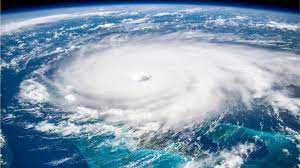Hurricanes and climate-related hazards continue to threaten Caribbean destinations and the region’s critical tourism sector, making preparation and mitigation “of paramount importance,” said Kenneth Bryan, chairman of the Caribbean Tourism Organization (CTO).
Countries across the region have faced a series of devastating storms over the past several years. This year, weather experts predict the 2023 Atlantic hurricane season will be “near normal,” with 12 to 17 named storms and five to nine hurricanes, including one to four major hurricanes, said CTO officials.
Speaking at a CTO virtual forum dedicated to disaster preparedness and climate resilience, Bryan said global climate change has increased related impacts on Caribbean nations.
Dry spells and droughts, heat waves and sea level rise, have combined to “[increase] the vulnerability of tourism facilities, many of which are located in low-lying coastal areas,” he said.
Additionally, heightened sea temperatures have contributed to coral bleaching and “the eventual mortality of this valuable natural resource, which he noted is not only a key tourist attraction but also serves as essential nurseries for declining fish stocks,” Bryan said.
Global atmospheric conditions augur a “normal” 2023 hurricane season, said Dr. Cedric Van Meerbeek, a climatologist at the Caribbean Institute for Meteorology and Hydrology.
An upcoming reversal of current Pacific Ocean trends, including the approach of El Nino, Van Meerbeek said during the forum.
The phenomenon will create warmer-than-normal Ocean temperatures and boost the heat in the atmosphere, Van Meerbeek said, but it will suppress rainfall, hurricane activity and flood potential.
Conversely, Caribbean air temperatures will be noticeably higher during the summer and fall. “What we do know is we’re going to see a lot of heat in the coming months,” Van Meerbeek said.
Developing a sustainable tourism industry that can manage and rebound from climate-related hazards requires “both government and the private sector to work collaboratively in the development of plans and strategies to reduce risk and vulnerability,” said Bryan.
Urging a “proactive approach,” he identified “infrastructure improvements; early warning systems; joint advocacy; effective communication and media management before and after times of crisis and education and awareness for visitors and residents,” supported by digital technology, as crucial to successful regional preparedness and resilience. (https://www.travelpulse.com/News/Destinations/Caribbean-Destinations-Must-Prepare-for-Climate-Hazards-Says-CTO-Chairman)





































